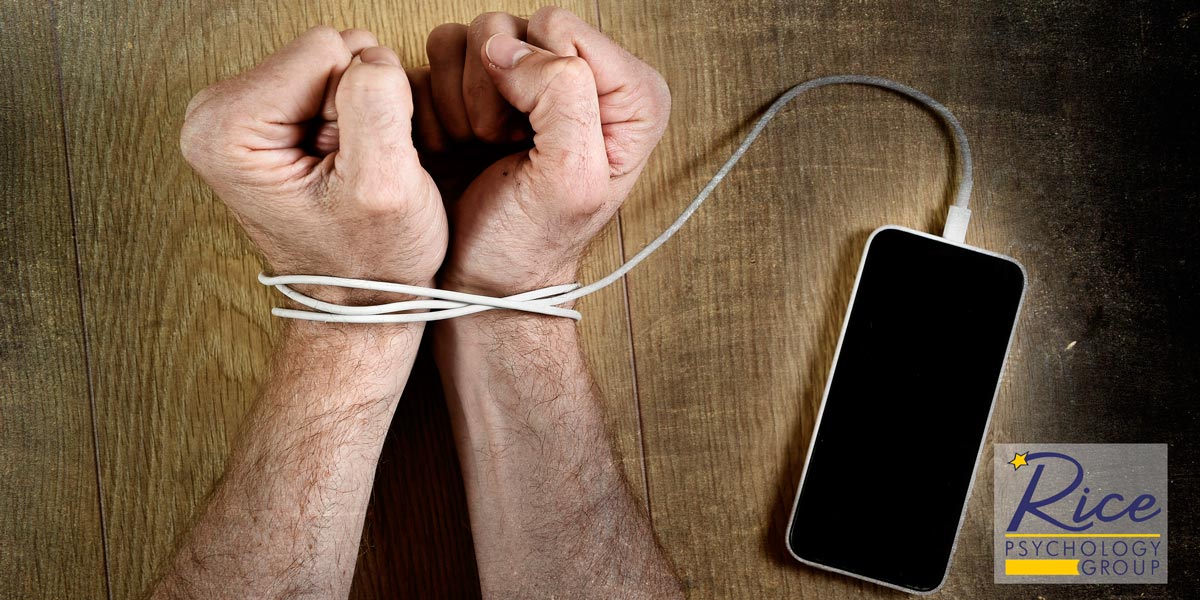Consider the following story as it relates to this week’s topic.
Katie and I had a pretty bad argument last week and it was completely my fault. She’d just made dinner for us and, even though I know how much she hates this, I spent almost the entirety of my meal on my phone. It’s not that I wasn’t listening to her conversation; I was just trying to catch up with some notifications I had at the same time. Of course, she says I have a problem keeping my eyes away from the screen, and I have to admit that it’s true. I just can’t help it. As soon as I put my phone down, I’m itching to pick it back up and go back to doing meaningless things. I get it, it’s a problem, but I really don’t know how to stop it.

If you were told that someone you once knew was suffering with an addiction of some sort, chances are you’d assume it was to drugs or alcohol. However, as society continues to move forward, it has provided one more thing to become addicted to: technology. There is a smart phone in the hands of almost every person out there and a computer in just about every living room. So, how can you possibly stop or minimize your own struggles with technology addiction? It can definitely be hard work, but our psychologists are here to help.
Why Can’t You Put the Phone Down?
Neural pathways in the brain reinforce drug dependency in exactly the same way they reinforce compulsive technology behaviors. This, in many cases, leads to an addictive and often destructive obsession with phones, computers, certain apps and anything technology-related. Keep in mind that almost everything we enjoy doing, such as eating, shopping and gambling, has the potential of becoming a psychological or physiological dependence.
When it comes to smartphones, according to Tristan Harris, a former Google product manager, it’s not the device we’re necessarily addicted to, but the apps and content it facilitates. Harris goes on to reveal that many of these apps are designed to “hack” the user’s brain, ensuring that every time you open your phone, you get something in return. This inevitably forms a habit and gives a healthy number of return customers to many major tech companies.
Dialing Back
In a recent CNN interview, Apple CEO Tim Cook revealed that he was alerted about his technology habits when he received data from a new Apple tool known as Screen Time, designed to track and provide reports of iPhone and iPad usage. The tool, which will be released shortly as part of the iOS 12 update, will help users track the time they spend on their apps and even provides ways for them to limit their usage of specific apps.
“I’ve been using it and I have to tell you: I thought I was fairly disciplined about this,” said Cook during his interview. “And I was wrong.”
While it may be surprising to see tech giants developing tools to help the public use their products less, it’s something that everyone struggling with technology overuse should take into consideration.
Applications such as Moment, Offtime and Flipd help users take mini “technology vacations” by tracking smartphone usage so you can focus on being present. You and your loved ones can also try dialing back your tech usage by doing the following:
Set screen-free boundaries throughout your day and stick to them. Click To Tweet- Set screen-free boundaries throughout your day and stick to them.
- Using a real watch or clock to help avoid reaching for your phone every time you need to check the time.
- Use your phone to create alerts that will identify your calls or messages as important or wait-worthy.
- Stack your phone in the middle of the table during meetings or dinner. First one to reach for their device has to pay for dinner!
Reach Out to Us
Addiction, no matter to what, can be incredibly difficult to overcome, but not impossible. Click To TweetAddiction, no matter to what, can be incredibly difficult to overcome, but not impossible. If you’re having trouble coming to terms with your very own addiction to technology, or if you’re ready to start moving forward, Rice Psychology Group can help. Our Tampa team of psychologists will hear you out in a professional and personal way. Our goal is to help you through your journey towards feeling better in a way that fits your needs. Contact us in Tampa for more information about our services today.

